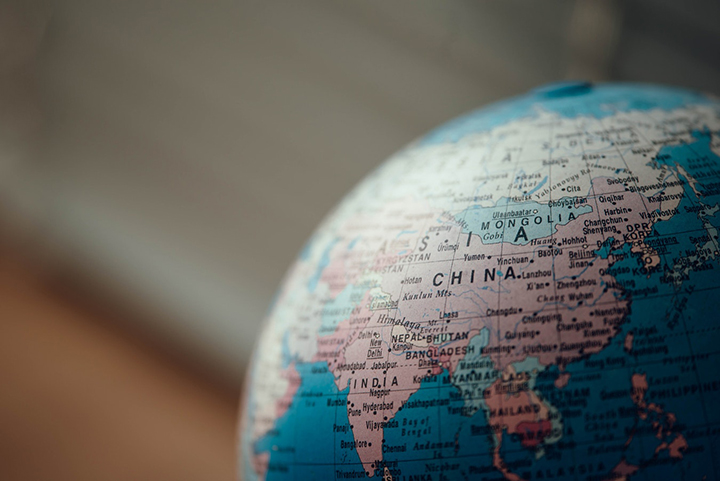Coalition Aims to Build Sustainability Into Belt and Road Initiative Projects
IISD is a leading partner in a coalition launched this week devoted to integrating economic, social, and environmental considerations into the Belt and Road Initiative.
A coalition launched this week devoted to integrating economic, social, and environmental considerations into the Belt and Road Initiative (BRI).
Over 100 international and Chinese partner institutions are included in this Belt and Road Initiative International Green Development Coalition (BRIGC). The International Institute for Sustainable Development (IISD) is a leading partner.
“We need to adhere to the concept of openness, greenness, and cleanliness,” said Chinese President Xi Jinping at this year’s Belt and Road Forum, held in Beijing from April 25 to 27, 2019. He added that the Initiative needs to “promote green infrastructure construction, green investment, green finance, and protect the common home for the sake of human survival.”
The Belt and Road Initiative announced by President Xi six years ago aims to slash trade costs, improve inter- and intra-regional connectivity, mobilize investment, and fuel economic growth across dozens of countries, from China to Southeast and Central Asia, to parts of the African continent and much of Europe.
“Infrastructure investments, especially in developing countries that are part of the Belt and Road Initiative, must be designed to support the achievement of sustainable development objectives,” said Nathalie Bernasconi-Osterwalder, IISD’s Group Director for Economic Law and Policy.
The Belt and Road Initiative International Green Development Coalition includes:
- China’s Ministry of Ecology and Environment
- The environment ministries of 25 countries that may host BRI projects
- Eight intergovernmental organizations, including several UN agencies
- Over 60 non-governmental organizations and research institutes along with 30 enterprises.
The BRIGC aims to help integrate sustainable development considerations throughout the design, execution, and long-term implementation of BRI projects. It will serve as a platform for policy dialogue and communication, as well as for exchanging data and other information on ecological conservation, environmental protection, and the prevention and mitigation of pollution. The coalition will also work on facilitating cooperation on green technology, including on its exchange and transfer.
"It brings together a lot of interesting partners. It's very important for China to have those kinds of partnerships because what we need to see for the Belt and Road to be truly successful has to involve interaction among the countries of the BRI," said Former IISD President Arthur Hanson, one of the Advisors on the coalition’s Advisory Committee.
Green Finance and Investment
The coalition features nine “Thematic Partnerships,” with specific work priorities and related activities. IISD is an international lead partner for one of these Thematic Partnerships—green finance and investment—together with the World Resources Institute. The Chinese lead partner is the Center for Finance and Development of Tsinghua National Institute of Financial Research. These three institutions will take stock of finance and investment approaches and policies in BRI projects and recipient countries, examining what lessons can be learned from recent and ongoing work on these topics. The three partners will also lead workshops and other capacity-building efforts as the BRI progresses.
IISD has a long history helping governments integrate sustainability into legal and policy frameworks for investment. Infrastructure sustainability is another core area of work for IISD, including through its research on green finance, infrastructure, and procurement, as well as its strong record of project valuations through the Sustainable Asset Valuation (SAVi) tool, developed with the MAVA Foundation.

About IISD
The International Institute for Sustainable Development (IISD) is an award-winning independent think tank working to accelerate solutions for a stable climate, sustainable resource management, and fair economies. Our work inspires better decisions and sparks meaningful action to help people and the planet thrive. We shine a light on what can be achieved when governments, businesses, non-profits, and communities come together. IISD’s staff of more than 250 experts come from across the globe and from many disciplines. With offices in Winnipeg, Geneva, Ottawa, and Toronto, our work affects lives in nearly 100 countries.
You might also be interested in
Promoting the Development of Agricultural Cooperatives
Governments in the Global South should promote agricultural cooperatives to boost smallholder access to fair markets, finance, and climate resilience.
COP 29 Outcome Moves Needle on Finance
In the last hours of negotiations, concerted pressure from the most vulnerable developing countries resulted in an improved outcome on the finance target, with a decision to set a goal of at least USD 300 billion per year by 2035 for developing countries to advance their climate action.
Stabilization Clauses: The hidden provisions that can hinder tax and investment policy reform
Stabilization clauses should no longer automatically be included in contracts between states and investors. If they are, they should, at a minimum, build on the latest international standards on stabilization to avoid being a barrier to sustainable development.
Why Trade Matters in the Plastic–Pollution Treaty Negotiations
The global push to end plastic pollution by 2040 highlights the critical intersection of trade and environmental action, with upcoming INC-5 negotiations focusing on reducing plastic production, consumption, and waste within a fair and effective international framework.